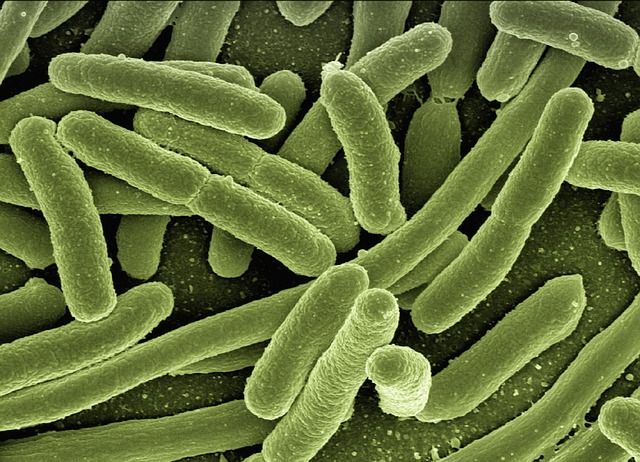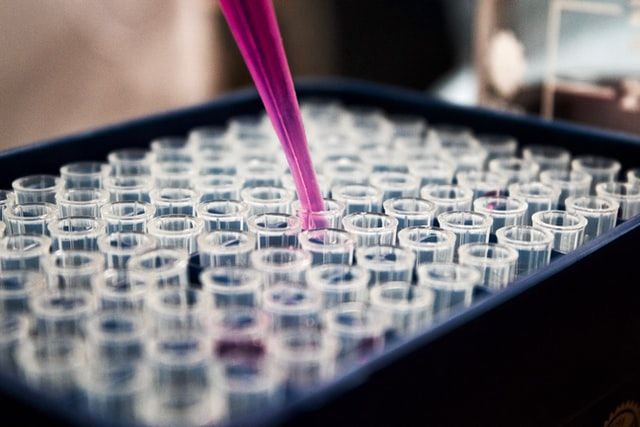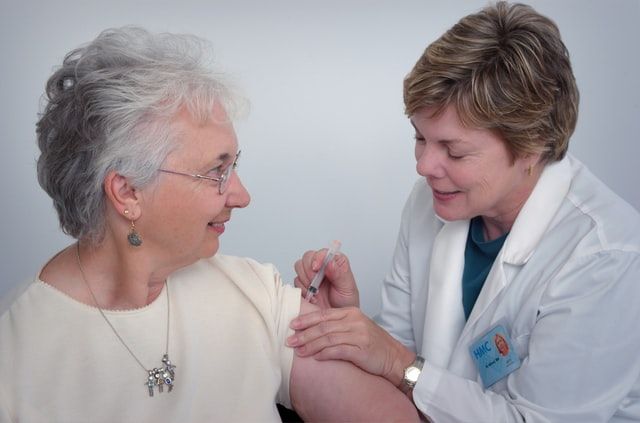
外帶英文幫助你掌握最新英文潮流 學習是場沒有終點的旅行,希望每一位來到這裡的朋友, 都能找到實用的資訊,每天超越自己一點點,就會帶來巨大的飛躍! 歡迎訂閱同時推薦給你身邊的朋友~ 【Podcast節目】englishgo.club/podcast 【FB】@englishgo.club 【IG】@englishgo.club 【合作聯繫】entogo666@gmail.com
[Vaccination] You must learn English words to supplement the post, you must know the knowledge of "epidemic English"!
Article source: Takeaway English official website
Taiwan recently announced that the national level 3 alert has been extended to July 12. Vaccination is seen as a solution that can turn the tide. Thanks to Japan, the United States, Lithuania and other countries for donating Taiwan's vaccines, we welcome a glimmer of light. Today, I will give you a lot of English vocabulary supplements and related knowledge that you must learn about [vaccination]. Learn from the "immune system" what is "automatic and passive immunity"? How to say "herd immunity and community immunity" in English? And how do you say "antibodies and antigens" related to the development of vaccines in English? How to say "in vitro test, animal test, in vivo test, clinical test" for vaccine development in English? How to say the efficacy, adverse events and adverse reactions of injection vaccines in English? After learning these words, you can talk about your opinions and arguments about vaccines in English and see how your "English resistance" is!

【Immune system, immunodeficiency, automatic immunity, passive immunity, herd immunity, community immunity】English words
In the fight against the epidemic, the "immune system" of the self is very important. "Immune deficiency" means that the immune system's ability to resist infectious diseases is abnormal or lacking, and they are prone to opportunistic infections. Patients with immunodeficiency are called "immune diseases". impaired immunocompromised". Let's take a look at how to say the English words related to the immune system:
1. active immunity
Active immunity refers to the ability of the body to generate immunity on its own. One is the immunity obtained after bacterial infection; the other is vaccine-induced immunity. immune effect. Active immunity against it produces immunity that lasts longer, often years.
- Cambridge Dictionary definition: the situation in which the body produces its own antibodies
- Example: The methods of active immunity have been practically applied in preventive inoculation against disease.
2. passive immunity
Passive immunity is the use of foreign antibodies to fight germs, that is, immunoglobulins or detoxification serum generally administered. This immunity is not produced by the organism itself, but by antibodies produced by other individuals to resist the pathogen. Since antibodies are not reusable and are subject to self-metabolism in the body, the protective effect is only temporary.
- The Cambridge Dictionary explains: protection against disease in the form of antibodies that come from someone else, for example from the mother's milk
- Example: Passive immunity is passed naturally from mother to infant when breast-feeding.
3. herd immunity/community immunity
- Herd immunity explained: protection from an infectious disease when enough people have become immune
- Example: Herd immunity may be achieved through previous infection or through vaccination.

[pathogen, antibody, antigen, adjuvant] English word
Vaccination is the most effective and economical way to fight infectious diseases. Vaccines are actually a part of pathogens, which are made by adding stabilizers and adjuvants through the process of inactivation or reducing toxicity.
4. pathogen
- Cambridge Dictionary definition: any small organism, such as a virus or a bacterium that can cause disease
- Example: The doctors have not been able to ascertain the pathogens that caused his cancer. The doctors have not been able to ascertain the pathogens that caused his cancer.
5. antigen
Antigens are substances that have the ability to induce an immune response.
- Cambridge dictionary definition: a harmful substance that causes the body's immune system to react, especially by producing antibodies
- Example: He will accept a negative antigen test taken within 48 hours of arrival on the island.
6. antibody
After the human B lymphocytes recognize the antigen on the pathogen, they will produce antibodies, and the combination of the antibody and the antigen will strengthen the phagocytosis of white blood cells, decompose the bacteria, and then protect the body.
- Cambridge Dictionary explains: a protein produced in the blood that fights diseases by attacking and killing harmful bacteria, viruses, etc.
- Example: Antibodies found in breast milk protect newborn babies against infection.
7. adjuvant adjuvant (non-specific immunoproliferative agent)
The adjuvant itself does not have the characteristics of an antigen and will not cause an immune response, but injecting it into the body together with the vaccine can increase the efficacy of the vaccine, reduce the rate of antigen decomposition or enhance lymphocyte proliferation.
- Cambridge Dictionary definition: a substance that strengthens the body's immune response
- Example: Using vaccine adjuvant to enhance immunogenicity.

【In vitro test, animal test, in vivo test, clinical test】English word
For a drug to be used in clinical treatment, it must go through such a process: in vitro tests, animal experiments, human trials, and clinical trials. In vitro test vitro testing broadly refers to experimental operations carried out in environments other than living organisms; in vivo test vivo testing, that is, experimental research carried out in intact and living organisms, such as animal testing and clinical trials. clinical trials are the only effective way to verify the safety and efficacy of drugs.
8. vitro testing in vitro testing / animal testing animal testing / vivo testing in vivo testing / clinical trial clinical trial
In order to understand the efficacy of a new treatment or a new drug, a study using human subjects must sign informed consent.
- Clinical trial Merriam dictionary definition: a scientifically controlled study of the safety and effectiveness of a therapeutic agent (such as a drug or vaccine) using consenting human subjects Conduct scientifically controlled studies
- Example: Historically, vaccine development and clinical trials can take 10-15 years. Historically, vaccine development and clinical trials can take 10-15 years.

【Vaccine efficacy, vaccine effect, vaccination, one dose, injection】English words
Generally speaking, clinical trials of new drugs are usually divided into one to four phases. After the clinical trials are completed, and the overall protection of the vaccine must be higher than 50%, the vaccine can be arranged. The so-called "Vaccine Efficacy" refers to the incidence of disease between the subjects who received the vaccine and the subjects who received the placebo during clinical trials; as for the "Vaccine Effectiveness" refers to It is the protective effect that can be achieved in the real world after the vaccine is launched and launched.
9. inoculate/ vaccinate vaccinations
【Medicine】verb v. injection; noun n. inoculation/vaccination to inoculate/vaccinate sb. with/against sth.
an inoculation/vaccination against or for sth.
to have an inoculation/vaccination
Vaccine noun n. vaccine; adjective adj. vaccine
- The Cambridge Dictionary explains: to give a weak form of a disease to a person or animal, usually by injection, as a protection against that disease
- Example: My parents have been inoculated against COVID-19. My parents have been vaccinated against COVID-19.
10. dose
dose noun n. one dose
in small/large doses
dose verb v. to take medicine
to dose sb. (up) with painkillers
dose oneself with aspirin
- Cambridge Dictionary definition: a measured amount of something such as medicine
- Example: The nurse gave me my first dose of vaccine yesterday.
The nurse gave me my first dose of the vaccine yesterday.
The label says to take one dose three times a day.
The label says one dose, three times a day.
11. inject/jab/shot injection
inject verb v. inject (medicine, etc.) + into; for (someone) injection + with
to inject sb. with penicillin
injection noun n. injection, injection
to give sb. an injection
jab/shot [mouth] injection, can be used as a verb and a noun
The method of vaccination is usually intramuscular injection. English words use intramuscular adjective adj. Intramuscular, adverb is intramuscularly, Like many vaccines, Covid-19 vaccine should be injected intramuscularly. Like many vaccines, Covid-19 vaccine should be injected intramuscularly .
- Cambridge Dictionary definition: to use a needle and syringe (syringe) to put a liquid such as a drug into a person's body
- Example: I asked the nurse to inject the vaccine in my right arm because I'm left-handed.
It's time for another injection. It's time for another injection.

【Adverse events, adverse reactions, side effects, vaccine failure infection】English words
An "adverse event" refers to an adverse reaction that occurs after a vaccine is administered. Although the time point of the reaction does occur after the vaccine is administered, there is not necessarily a causal relationship between the two. As for the "adverse effect", it refers to the negative reaction after the injection, and there is a causal relationship between this negative reaction and the vaccination.
12. adverse event
Medical adverse events are not caused by the original disease itself, but caused by medical behaviors that cause physical harm to patients, prolonged hospitalization, or a certain degree of disability or even death when they are discharged from the hospital. Preventable/avoidable adverse events refer to specific harms that can be avoided by correct execution according to existing methods and knowledge, but are still caused by mistakes.
- Adverse event explained: any health problem that happens after vaccination. A reported adverse event is followed up by experts to determine whether it was linked to the vaccine or purely coincidental. Experts track the reported adverse event to determine whether it is vaccine-related or purely coincidental.
- Example: In the USA vaccinated people can report any adverse event online.
13. adverse effect
Up to now, the "adverse effects" or "side effects" after the administration of the new coronary pneumonia vaccine are mostly pain at the vaccination site, redness, fatigue, headache, muscle aches, elevated body temperature, etc., but most of them will occur within a few days. disappear.
- Side effects explained: an unpleasant effect of a drug that happens in addition to the main effect
- Example: Does this drug have any side effects?
14. breakthrough cases/ breakthrough infection
People who have been vaccinated can still get new coronary pneumonia, which is called a "breakthrough infection of vaccine failure".
- Explanation: when a fully vaccinated person later gets the disease they were vaccinated for the disease they were vaccinated for.
- Example: In extreme breakthrough cases patients may be hospitalized.
The above must learn [vaccination English words] supplement and related knowledge. In the long run, we must establish "herd immunity" as soon as possible, that is, more than 70% of people must be vaccinated to protect ourselves and our families once and for all with the community. I believe that with the concerted efforts of the whole people, normal life will be restored as soon as possible in the near future.
If you like my article, or think it is helpful to you, please help me like it below and share it. Your support is the driving force of creation. You are also welcome to follow the takeaway English official website , FB or IG . Thank you for your support 😊 If there is Any English topics you want to learn, welcome to leave a message to me 😉
After reading this, you can still read the next one~
Post-epidemic era "home economy" must learn【English new words】
Anxiety about WFH's participation in [English Video Conference]? "Conference Survival" must learn English sentences and teach you to host international conferences with confidence! -(superior)
Anxiety about WFH's participation in [English Video Conference]? "Conference Survival" must learn English sentences and teach you to host international conferences with confidence! -(Down)
Like my work?
Don't forget to support or like, so I know you are with me..
Comment…